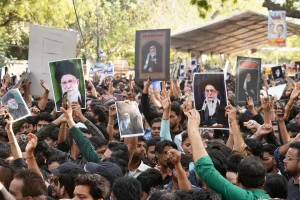Dress Expectations for Tourists During National Mourning
In times of national mourning, while the majority of citizens across the country will adopt traditional black or somber attire to honor the deceased, visitors and tourists are generally not held to these same cultural expectations. This considerate exemption recognizes that travelers may be unaware of local customs or unprepared with appropriate clothing options during their visit.
Most locals understand that tourists come from diverse cultural backgrounds with different mourning traditions, and may not have packed formal or dark clothing for their journey. While respectful behavior in public spaces is always appreciated, particularly around memorial sites or during ceremonial events, there is typically an unspoken understanding that visitors are observers rather than participants in the national grieving process.
For tourists who wish to show solidarity or respect during such periods, subtle gestures are often sufficient – perhaps avoiding overly festive clothing or boisterous behavior in public spaces, particularly near government buildings, memorials, or areas where commemorative events are taking place. This middle ground allows visitors to continue enjoying their travels while acknowledging the somber atmosphere of their host country.
Tourism establishments and hospitality workers generally continue providing services during mourning periods, though possibly with adjusted schedules around official ceremonies or moments of silence. Many cultural sites and attractions remain accessible, offering visitors the opportunity to learn about the historical context of the mourning and the significance of the person or event being honored.
The flexibility extended to tourists during periods of national mourning reflects a practical understanding that travel plans are often made well in advance and can be difficult to change. This accommodation demonstrates how countries balance honoring their traditions while maintaining a welcoming atmosphere for international visitors, whose presence often provides important economic support to local communities even during difficult times.
For travelers finding themselves in a country during mourning, this considerate exemption from strict dress codes represents a thoughtful cultural compromise – acknowledging that while they may not physically participate in mourning customs, they can still offer respect through their awareness and appropriate conduct while continuing to experience the destination they came to explore.








